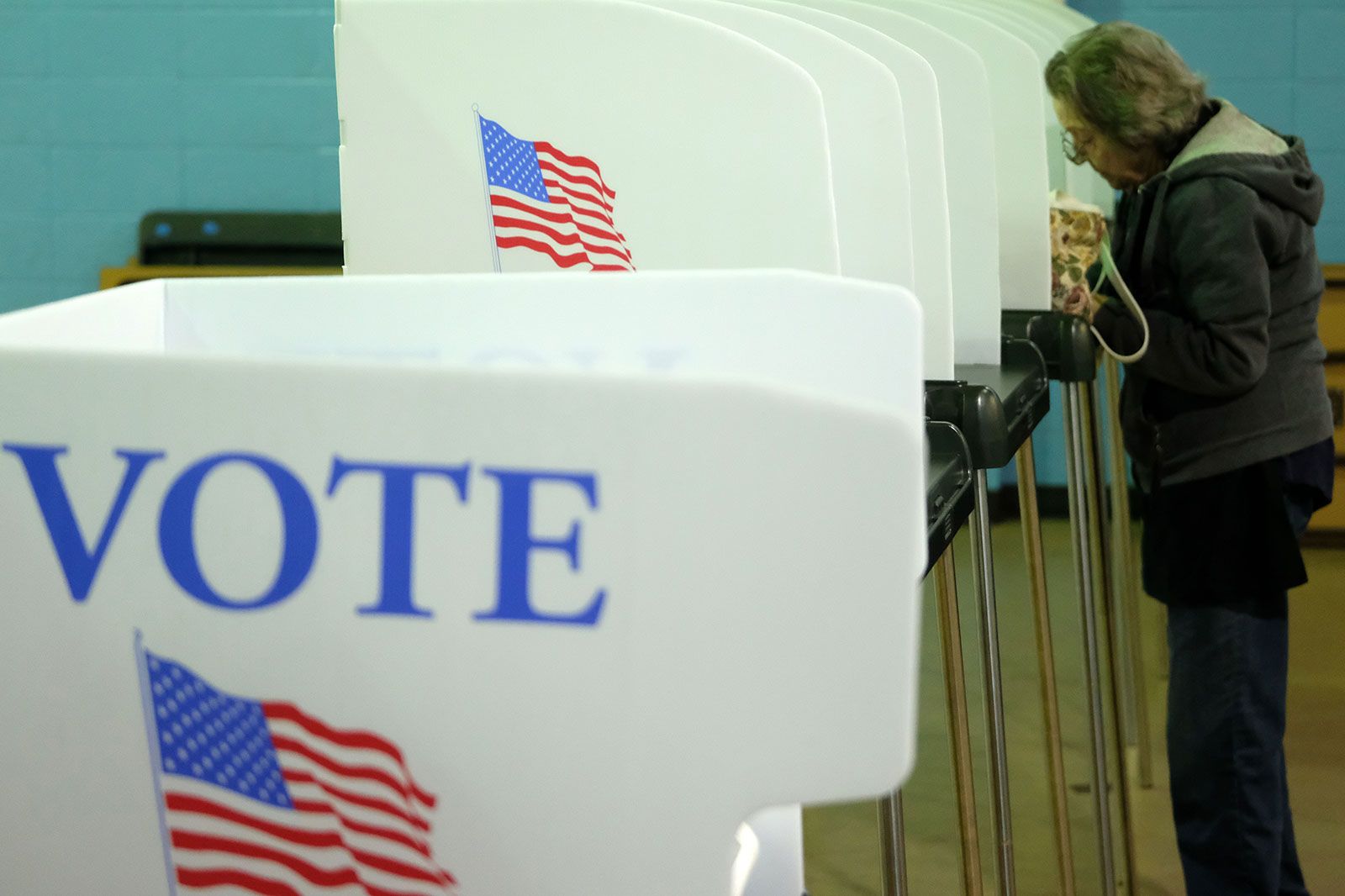As President Joe Biden frames the race for the White House as a fight for democracy, Democrats at the state level are already engaged in what they dub “the year of the states”. The Democratic Legislative Campaign Committee (DLCC), dedicated to state legislative races, has raised a record-breaking $21 million in 2023, an unprecedented sum for an off-year. The committee is now charting a course for the upcoming year in battleground states and red states where they see potential to disrupt Republican legislative supermajorities, according to a memo released Wednesday.
Despite the high-stakes presidential election and a close race for Congress, state-level races, which will be lower on the 2024 ballot, are gaining increased recognition for their relevance. This is particularly true in light of the 2022 Supreme Court decision to overturn Roe v. Wade, making abortion a state-decided issue.
DLCC President Heather Williams emphasized the growing recognition of the importance of state-level politics. “There is more attention and clarity about the impact that states have on people’s everyday lives and on our party’s agenda,” Williams said. “We’re really the center of gravity of where things are getting done.”
The DLCC’s strategy reflects ambitious fundraising goals and builds on recent successes. However, it also acknowledges that Democrats have lagged behind Republicans in drawing maps and investing in these races over the past decade, leading to tangible consequences for voters on issues such as reproductive rights, voting rights, and gun laws.
Despite concerns over President Biden’s sagging poll numbers, Williams pointed to positive signs of voter enthusiasm in state-level races over the past year and a half. “We’re seeing voters show up for these elections,” Williams said, noting that Democrats picked up legislative chambers in 2022 and 2023 and overperformed in special elections last year, even in some red territories.
The DLCC’s grassroots fundraising is also a bright spot, despite what the memo calls “downward industry trends”. Williams attributed this to their message about state-level politics having a direct impact on people’s lives. “If you care about access to abortion, it is state legislators who are the ones who can protect it,” she said.
The DLCC’s priorities for 2024 include protecting majorities in the Michigan House, the Minnesota House, and the Pennsylvania House. They are also aiming to flip the Arizona House and Senate, the New Hampshire House and Senate, and the Pennsylvania Senate. The DLCC’s investments in red state legislatures are aimed at protecting Democratic governors’ veto power, specifically in Kansas, Wisconsin, and North Carolina. The group is also looking to build up Democratic legislative power in Georgia, which has a Republican governor.
However, the DLCC faces potential challenges in 2024, as four of the six states where they are investing are also presidential battlegrounds and are hosting top-tier Senate races. The increasing nationalization of elections could complicate the political environment for down-ballot races.
The DLCC’s goal for this year is a budget of $60 million, $10 million more than its budget for the 2022 cycle and four times as large as its 2016 budget. Despite their record-breaking haul in 2023, more than half of the budget is yet to be raised during the on-year, when big donors and grassroots supporters will be inundated with solicitations from the top of the ticket, as well as US Senate and House campaigns.
Williams acknowledged that while the DLCC is excited about its growth in fundraising and the strides the party has made in prioritizing these races, there’s more to be done. “There’s still a healthy gap between the investments that we’re seeing in state legislative races and in the DLCC compared to our federal counterparts,” she said.
Williams also stressed the importance of early investment in these races. “We are seeing increased investment in these races, but we’re still seeing that investment come really late in the election,” she said. “It becomes critically important when we are competing with statewide and congressional races.”
Williams concluded by emphasizing the importance of direct voter engagement in these races. “What we learned in Virginia, which continued to prove something that we saw in 2022, is that these candidates in these communities on the doors having conversations with voters matters so much,” she said. “And it matters so much because there is so much noise.”

